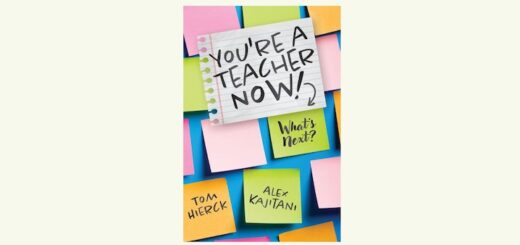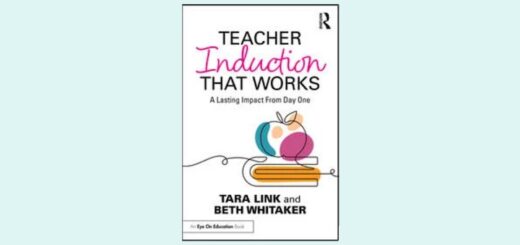Report Card Comments: Reading Between Lines
A MiddleWeb Blog

It’s report card time again. This marking period we are required to write comments for the parents, along with the perfunctory A’s, B’s, and C’s. This is a time consuming venture, but one I admit I do enjoy, once I zero in on the task at hand.
The comments on each of my student’s report cards are often the only chance I get to describe to parents, in written form, my picture of their whole child. I realize it is only a snapshot of who that child is. It only reflects life at school. But it’s an integral piece of the puzzle. I can do my best to provide an open rendition of my observations and opinions as the teacher. I have many of these.
In his article What Teachers Really Want to Tell Parents, Ron Clark (founder of the Ron Clark Academy in Atlanta) discusses many of the difficulties that teachers who want to provide honest reporting of academic, emotional, and social progress may encounter. Discussions are often hindered by the obstacles that cause strained relationships between home and school. It’s unfortunate.
I have had my share of parents who, intentionally or unintentionally, have fastened on a set of blinders when it comes to their children and the challenges they face as learners.
“Rather loud and voiceful”

I must admit, I got a smile out of reading about myself. I don’t remember that five-year old very well.
Mrs. Underwood’s report was broken into categories that someone at the time had deemed representative of the whole child: Social Qualities, Intellectual Qualities, Emotional Development, Routine Habits, Physical Abilities, Play Activities, Music and Art Skills, and Language. This seems like a pretty well-rounded picture to me.
In Mrs. Underwood’s opinion, I was a pretty neat kid. I chuckled a bit when I got to her language assessment. I expressed my ideas “clearly and distinctly” but the five-year old version of me also “let her emotions get the better of her, and then had the tendency to be rather loud and voiceful.” Some things never change.
I think Mrs. Underwood meant what she said. I imagine there were times when those emotions of mine caused her some strife, but report card comments aren’t the proper forum to discuss these specifics. Besides, as Clark points out in his article, teachers are walking on eggshells these days. Some parents are quick to attack the teacher, or the education system in general, instead of taking a closer look at reality and the needs of their child. Our ability as educators to give open, accurate, and honest assessments to the parents, our “partners” in education, has become distorted.
Writing on eggshells

This makes it easier to keep positive when dealing with the parents who close themselves off to my opinion, as a professional, about how their child is doing in my classroom. I want the report card comments they receive from me to be accurate, but there are certain things that you just can’t write down for posterity on a report card. I have managed to find some clever ways of trying to make my point when writing these comments.
Perhaps it would be fun to take a look at some of them, to analyze their level of accuracy, and to determine whether my message may have been lost in translation as a result of the eggshells I find under my feet. (Disclaimer: The names have been changed to protect the guilty…myself included.)
“Jimmy is often late for school. As a result, he starts each day a little bit behind the rest of us. It would be helpful, because of the challenges that he has staying organized, paying attention in class, and transitioning from one activity to the next, if he could get to school on time each day. This would enable him to participate in our morning meeting, hear our plan for the day, and assist him in developing the organizational skills he will need to be a successful learner.”

“Stephanie has some difficulty working with a small group. She is eager to share her ideas and opinions; however, we need to encourage her to give other students in the group a chance to voice their ideas as well.”
TRANSLATION: It is really difficult to include your daughter in small group work because none of the other children want to work with her. She bosses everyone around, makes nasty comments, and dismisses any idea that is not her own. She is becoming a social pariah, and we really need to help her work on developing an awareness of other people’s feelings.
“Kevin has a great deal of difficulty focusing and listening during instruction. Following directions, both oral and written, is another area we need to concentrate on helping him to develop. He is easily distracted and often distracts his classmates.”
TRANSLATION: I think you need to speak with your pediatrician. I’m not a doctor, and I don’t advocate for using (or not using) medication. Each child’s needs are different, but Joseph is really struggling to keep up with the herd. Your pediatrician’s input could be valuable to all of us.
“Lila often comes to school without the materials she needs for the day, and her homework is often missing or incomplete. We want to help her develop a sense of responsibility for her school work, as well as her independence.”
TRANSLATION: I receive a lot of notes and emails from you about why Lila doesn’t complete her work at home. I think her outside interests in art, music, and sports are an important part of her development as a person, but something’s gotta give! I need your help at home! She needs you to supervise more diligently until she starts to develop some independence.

TRANSLATION: You have a great kid! Thanks for working with me, for being honest and open in your communication with me, and for being so supportive and understanding with the challenges we are all facing with education today. Please know that you play an integral part of helping her have a fourth grade experience that is positive, productive, and a whole lotta’ fun!
Getting away with saying things

Evidently, the five year old version of me is alive and well, and can still “let her emotions get the better of her,” and has “a tendency to be rather loud and voiceful.” I guess Mrs. Underwood knew what she was talking about all those years ago.
I wonder what will become of the report card comments that I just finished writing for this quarter…many years from now?


































Good article. I am a parent who really truly respects my child’s teachers but I have a question and really want to know a teacher’s opinion. I have a 12 yr old with attention issues (inattentive) he is on an Ed plan and his teachers are aware. I have also shared with all of them that he is having real anxiety and self esteem issues since starting middle school. His math teacher puts in his report card that he is “unable to focus and seldom participates in class discussions.”? Honest answer, do you feel that comment is in any way helpful or necessary?? Because all it accomplished was to make my son feel less than.
Thanks, Ann…and the timing of your comment couldn’t have been better. I am in the process of writing report card comments, so it was good to revisit an old post and reflect on it.
I’m sorry your son is feeling badly about his learning. It’s strange, the middle school in our town (where my kids go to school) doesn’t have a comment section. They assign a 1 or 2 to various, generic subcategories. This isn’t very helpful to me as a parent.
As a teacher, I must say that I have had to report some difficult observations to parents…and I do include references to some of these behaviors in my report card comments, but I try to be gentle in my wording and solution-based. I save the specifics for face-to-face meetings with parents or for conversations via email.
If your son has an Ed plan, you can always request a face-to-face meeting with his teachers to try to brainstorm how best to help him. Best of luck!
I am grateful to you for talking on this topic. It has earned more importance these days.
Thank you. Honest, home-school communication is so important.
My then 12 year old is now 17….hard to believe.
Can I just re-ask, for others who might experience this, does it seem redundant for a teacher to state “unable to focus” to a student who has already been formally diagnosed as “unable to focus.”
Looking back, as I have watched my son go through his school years, the hardest thing about his ADD for him was that his confidence and self esteem took such a hit. He is only now slowly coming out of it. My heart goes out to the kids who are affected this way. I just don’t see how pointing out the obvious in comments has anything but a negative effect.
Thanks for giving me another opportunity to reread my opinions from 2014 and to reflect. My son was diagnosed with ADHD a few years before I wrote that piece, and we worked openly and honestly with his teachers to guide him toward success. His self-esteem took a hit too, but that wasn’t about the comments on his report card. It was about struggling to pay attention in class and worrying what the other kids thought. Not all parents are willing to work with the school…or to see in their child what we see at school. My goal is to be honest about my learners when writing report card comments, but I don’t openly discuss IEP-related behaviors in my formal comments. Constructive feedback (that is solution-oriented) is meant to help families do their part at home and to give them a narrative glimpse of the child I see each day at school.
I’m glad your son (and mine) got through the challenges they each faced in grades K-12!…mine is 19 now and he’s become a pretty confident young man :)